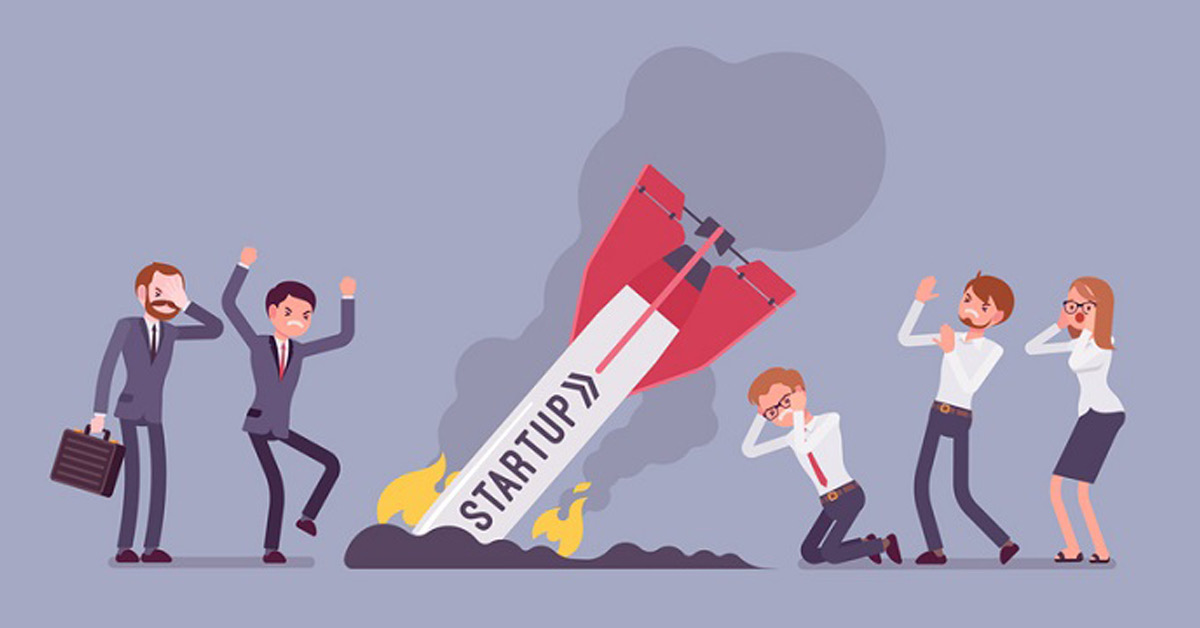Founders of a previously successful venture have a 30% chance of success with a new startup because their reputation is more likely to attract the right investors and talents. Indeed, the startup success rate is low, as 9 in 10 startups are likely to fail. Therefore, founders who have relevant business and financial experience have better chances of avoiding the biggest reasons for failure. Indeed, over 40% fail to understand market demand, while approximately 30% fail due to running out of funding.
Startup business challenges in 2021
The combination of financial and market understanding is at the core of building a reliable path for growth. But in a post-pandemic environment, startup founders need to consider long-lasting covid consequences too.
1. Volatile investment markets affect investors
Startup funding is one of the staples of a diversified investment portfolio. However, it is fair to say that the volatility of 2020 continues to affect investors. As such, startups can struggle to find funding from angel investors. Therefore, it becomes obvious that founders need to get creative to unlock the funds they need. Self-financing entrepreneurs are now building a high-revenue portfolio to support their startups. A diverse startup portfolio should include safe pairs on forex trading markets, reliable stocks and shares expected to grow slowly, bonds, and real estate shares and sublets.
2. Established competitors are going big on marketing
With limited funding, startups can’t afford to go big with their marketing budget. Yet, cost-effective strategies can drive high ROI. It pays off to invest in branding as it’s going to be crucial to establish the business and gain visibility. Social media activities don’t have to break the bank. On the contrary, social media presence is beneficial at many levels. It provides market knowledge and trends and enables brands to build a solid presence at a low cost. In many ways, building a reliable social media network can be a life-saver for startups that face aggressive competition from companies that are trying to recover their pandemic losses. A digital network will help extend the brand reach and leverage audience groups.
3. Securing talent is proving hard
Job uncertainty during the pandemic has affected more industry sectors. Professionals are now becoming more cautious about working with a startup. They are worried about the startup going under and having to go back on job hunting. Consequently, it can be tricky to convince talent to join your brand when the startup is new. There is no history or financial background that can be used for reassurance. However, it can be a good idea to suggest contracting positions rather than full-time fixed roles until the startup can prove a reliable employer.
4. Competition from like-minded individuals
Unfortunately, the pandemic has driven unemployment rates high. As a result, solo businesses and startups have risen during the global health crisis. Startups are likely to feel strong competition from similar business models. The startup and solo venture boom heightens the risks of failure in the future. Indeed, the pandemic has caused new businesses to double, which means that niche markets have become twice as competitive for small businesses.
Startups in 2021 face a triple challenge to establish their brands. They arise in a context of economic recovery, which means that investors are rare. The surge to secure profits creates a difficult market where big companies become direct competitors. Talent is more difficult to find, as workers want financial security and previously unemployed professionals are now competing at an entrepreneurial level.
5. COVID-19
Well sadly, we aren’t over with the harsh pandemic scenario yet. The situation in some APAC regions is still stiff and in a world where people are fighting for life, doing business and thinking about investments becomes cringey in itself. That’s why you see startup accelerators postponing their cohorts and various events getting cancelled, on top of that the entire startup ecosystem is being disrupted with lesser potential of cross-border investments and many other related issues.
Also, time management amid the pandemic scenario has also become a stiff job, working from home isn’t a desired and comfortable career option anymore – making it immensely difficult for startup businesses and SMEs to raise funding, garner partnerships, and even scale-up on bootstrapped level.





